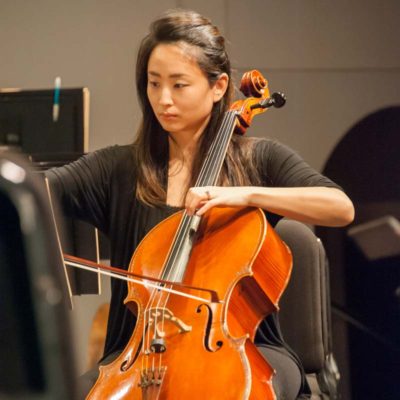It’s almost time! As the Richmond Symphony Orchestra approaches the opening concert of its 60th Season, I’d like to reflect on what that means to me.
I’ve been on the board for 12 years now. Twelve! Having grown up surrounded by classical music, I was so honored to become a part of this important local arts organization. It was clear to me, even then, that the RSO was a real jewel in this community. I’ve been so proud to see the progress that’s been made within the organization without compromising, even a little bit, the dedication to music performance of the highest caliber. This has always been of primary importance to the RSO, and we have remained committed to that priority while ensuring musical growth and fiscal responsibility.
I have spent a fair amount of time in leadership positions on the board, having been President from 2009 to 2011, and I currently chair the Artistic Advisory Committee. I’ve learned so much having worked closely with Guy Bordo, our Music Director, and it’s been a real treat to be a part of his ongoing efforts to program seasons that remain fresh and relevant while paying homage to the old standards. There’s a fine line there as we, like every arts organization, see our core audience age. Classical music has become less and less relevant in mainstream society, so we must find a way to convince new generations that classical music still has value while not alienating our most loyal fans. That’s not always easy, and there can be ramifications. But Guy has struck a beautiful balance, always striving to program the beloved and familiar masterpieces in conjunction with new and challenging pieces. What have we found? Our audience doesn’t mind. Some love the new stuff and wish we’d do more of it. Others appreciate being exposed to it, admitting it’s not their cup of tea but glad for the experience.
Could we have taken such risks even ten years ago? Probably not. But our education and outreach, Guy’s affable manner of explaining new sounds and formats from the stage, and our musicians’ true commitment not only to the music but also to their relationship with patrons, has created an evolution of our audience that values classical music from a diverse body of periods, methods, compositions, and ethnic backgrounds. Consider the following “risks” taken in the past five years, all of which succeeded in exposing the audience to new sounds and challenged the musicians in ways small regional symphonies like ours often don’t.
—In the 2011-2012 season, the season opened with a diverse concert, combining old masters like Beethoven, Holst, and Saint-Saens with living composers like Jennifer Higdon (whose blue cathedral uses wine glasses filled to various levels with water as instruments), Arturo Marquez of Mexico, and Philip Glass, an influential yet still controversial composer.
—The 2012-2013 season continued with this happy balance, giving the community such beloved favorites and Tchaikovsky’s Nutcraker ballet and a Brahms standy-by but also introducing us to the likes of Mason Bates (whose Rusty Air in Carolina was written for orchestra and electronica, making use of recording popping sounds played from a laptop), Christopher Theofanidis (whose Violin Concerto was so new it had not even been commercially recorded), and Michael Abels (whose Global Warming expertly combines elements of Irish and Arabic folk music).
—Our musicians got a rush in the 2013-2014 season, when Guy bravely programmed Prokofiev’s Fifth Symphony to open the season. The piece is a well-respected work of the first half of the 20th Century, and it’s big and tough. Our orchestra played it beautifully much to the delight of the audience.
—Guy took a chance in 2015-2016 to perform Philip Glass’ Violin Concerto, which can be challenging both for the orchestra and for the audience. He took a risk, and it paid off, again exposing many members of the audience to something new, even if it did not become a new favorite, while giving the musicians a chance to stretch their legs.
While an anniversary season gives us a good opportunity to look back at our progress (hence all of the above), it’s also a good time to showcase our hopes for the future. Therefore, our 2016-2017 season will truly focus on how The Best is Yet to Come by continuing to delight us with traditional favorites while challenging us with newer and lesser-known works. You’ll hear composers from diverse walks of life spanning centuries, and you’ll feel like part of the family as Guy and the orchestra narrow the gap between the stage and the audience. As the RSO remains accessible to everyone with affordable ticket prices and free seats for kids, you’re all invited to lose yourselves in the powerful magic of music as we all celebrate what’s to come in the next 60 years and beyond.


